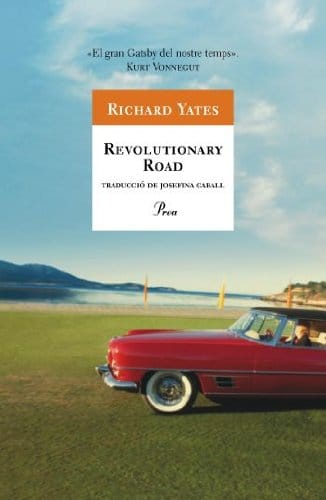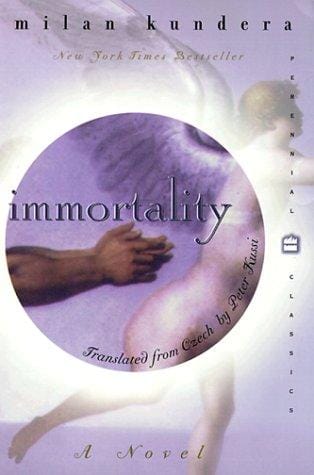Revolutionary Road: A Timeless Exploration of Suburban Dreams and Disillusionment
An 800-word dive into Revolutionary Road, examining its themes, characters, legacy, and the differences between Richard Yates's novel and Sam Mendes's film.

Introduction
First published in 1961, Richard Yates's Revolutionary Road follows Frank and April Wheeler, a seemingly golden couple in 1950s Connecticut whose carefully curated suburban life cracks under the weight of unmet expectations. More than half a century later, the story still resonates for its unflinching look at ambition, conformity, and the quiet desperation that can lurk behind picket fences. This article explores the novel, its 2008 film adaptation, and the reasons both remain culturally urgent.
Background of the Novel
Yates drew from his own experiences as a copywriter and a troubled husband to create the Wheelers, distilling the restless energy that simmered beneath the prosperous postwar era. Revolutionary Road was a finalist for the National Book Award yet sold modestly, later falling out of print before being revived by a new generation of readers and writers who recognized it as one of the great, if blistering, American novels of the twentieth century.
Plot Overview
Set in 1955, the novel opens with the amateur performance of April's community theater group, a production that goes disastrously wrong and triggers the first of many fights between the Wheelers. Convinced they are meant for bigger things, the couple hatch a daring plan to move to Paris, where April imagines Frank will discover his true calling. Yet looming financial pressures, an unexpected pregnancy, and Frank’s ego push the dream further out of reach, culminating in tragedy.
Exposing the American Dream
On its surface, Revolutionary Road appears to chronicle the downfall of one marriage, but Yates's critique is ultimately aimed at a larger target: the hollowness of the mid-century American Dream. The Wheelers' ranch house, company picnics, and nightly cocktails reflect a nation obsessed with status while ignoring spiritual emptiness. By dramatizing their disillusionment, Yates exposes how consumer comforts can anesthetize deeper yearnings until they finally erupt in destructive ways.
Marriage and Communication
Communication—or the lack of it—drives the narrative tension. Frank cloaks his insecurities in cynical jokes, whereas April speaks in sweeping proclamations that dare Frank to become exceptional. Their conversations alternate between passionate conspiracy and vicious recrimination, illustrating how partners can weaponize shared dreams. Yates suggests that the real failure is not their Paris plan but their inability to articulate authentic needs without fear, pride, or performance getting in the way.
Frank Wheeler: Charm and Conflict
Frank Wheeler is both everyman and cautionary tale. He imagines himself superior to his suburban peers yet settles into the same commuter routine, working at the sales desk of the company his father once served. When an affair with a secretary briefly invigorates him, Frank mistakes lust for liberation. His craving for admiration ultimately sabotages the family’s Paris dream, proving that ego can be just as confining as the social norms he despises.
April Wheeler: Yearning for Freedom
April, by contrast, embodies restless intelligence and smoldering dissatisfaction. Trained as an actress, she feels shackled by domesticity and the repetitive charm of neighborhood small talk. Paris represents not just escape but self-actualization—a place where she can work, study, and encounter life on her own terms. Yates renders her desperation with aching clarity, culminating in a final, heartbreaking decision that indicts an entire culture’s refusal to grant women meaningful agency.
Yates's Prose and Literary Impact
Part of the novel’s enduring power lies in Yates's spare yet rhythmic prose. His sentences glide from mordant humor to lyrical sadness in a single breath, often ending with an image that lingers like cigarette smoke. Influenced by Fitzgerald and Hemingway but unmistakably his own, the style invites readers to inhabit the Wheelers' fragile optimism even as they watch it crumble. Contemporary authors such as Richard Russo and Jonathan Franzen cite Yates as a formative influence.
From Page to Screen: The 2008 Film
Director Sam Mendes brought Revolutionary Road to the screen in 2008, reuniting Titanic co-stars Leonardo DiCaprio and Kate Winslet. Justin Haythe's script hews closely to the source material, while Thomas Newman's minimalist score underscores the mounting dread. The film retains Yates's central conflicts but uses visual cues—vacant cul-de-sacs, billowing curtains, and sterile boardrooms—to amplify the sense of entrapment. Winslet, in particular, captures April's incandescent hope sliding into despair.
Key Differences Between Book and Film
Yet cinema inevitably reshapes the story. The novel’s interior monologues become lingering close-ups, and some secondary characters—such as the Wheelers' bohemian neighbors, the Campbells—receive less screen time. Most significantly, the film softens Frank, hinting at a latent tenderness that the book rarely affords him. While these changes make the couple more sympathetic to a modern audience, they also dilute the razor-sharp critique that makes the novel so unsettling.
Enduring Legacy
More than sixty years on, Revolutionary Road still functions as a cultural barometer. In an era of social-media perfection and remote work ennui, the Wheelers' predicament feels eerily current. Book clubs and college courses revisit the text to discuss gender roles, mental health, and economic precarity. Meanwhile, the term Wheeleresque has crept into criticism as shorthand for stories that expose the gulf between self-image and reality.
Conclusion
Revolutionary Road endures because it refuses easy comfort. Whether read or watched, it confronts audiences with a question that remains painfully relevant: what happens when the life we are supposed to want collides with the life we truly crave? By stripping away the gloss of suburbia, Yates invites us to examine our own compromises—and perhaps to imagine braver, more honest futures.



